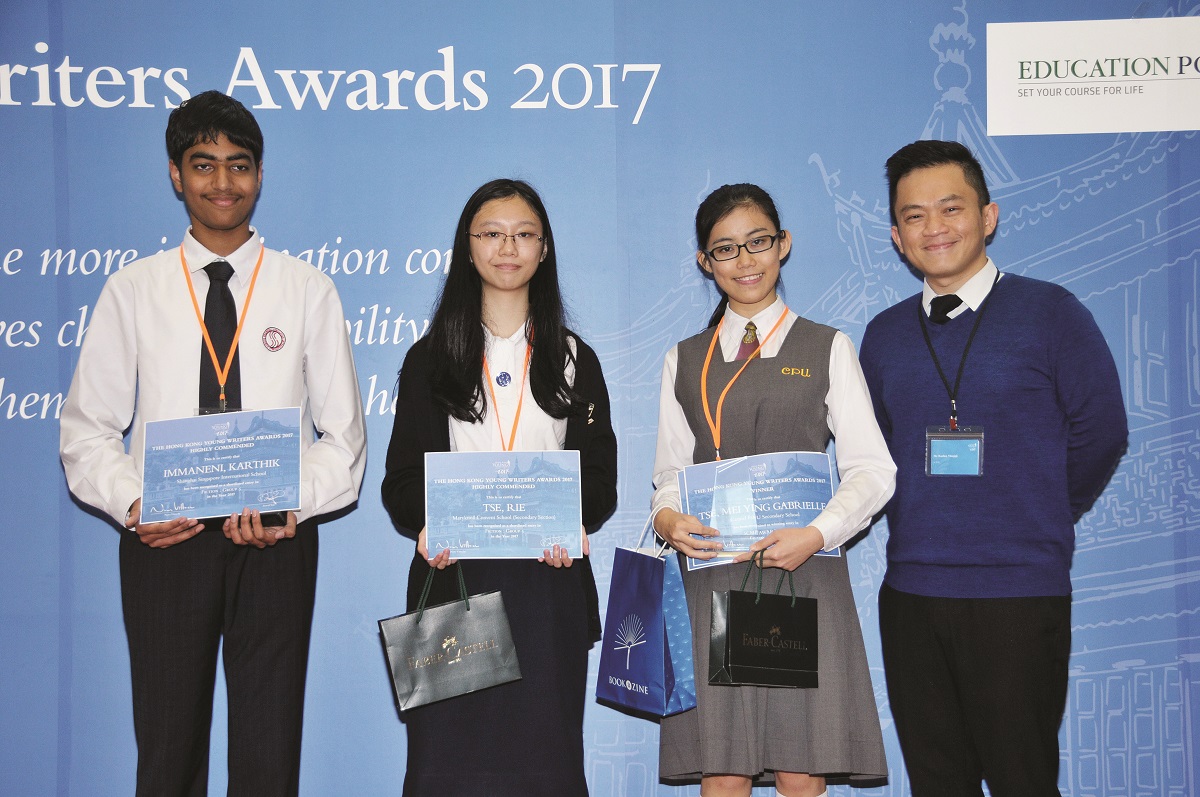The Hong Kong Young Writers Awards 2017
An event that inspired young aspiring journalists and authors across the city.

The Hong Kong Young Writers Awards have sparked the imagination of the city’s young wordsmiths for the past eight years. And, maintaining that high level of interest and enthusiasm, this year’s contest attracted a record 990 entries across the various age groups in categories for fiction, non-fiction, poetry, digital storytelling and cover art.
The writers and artists were set the theme of “New Tales of Old Shanghai”. Surrounded by a defensive wall, the Old City continued to be the seat of Chinese authority even after foreign powers took control of parts of Shanghai in the 19th century.
The subject inspired everything from epic tales to sharply focused pieces packed with descriptive detail. From a shortlist of 112 young authors, the panel of judges led by Nury Vittachi, one of Hong Kong’s leading literary figures, had the difficult task of choosing the 19 winners announced at a ceremony held in March at Cyberport.
Repeating her success in 2016, this year’s overall winner was Gabrielle Tse Mei-ying. The 17-year-old student at Carmel Pak U Secondary School wrote Siege, a romantic tale of nameless young lovers caught at a crossroads in history.

“It is set in the final years of the golden age of Shanghai, right before the Sino-Japanese War,” Tse says. “I wanted my lovers to resemble the background characters in an oil painting - you want to guess what their story might be.”